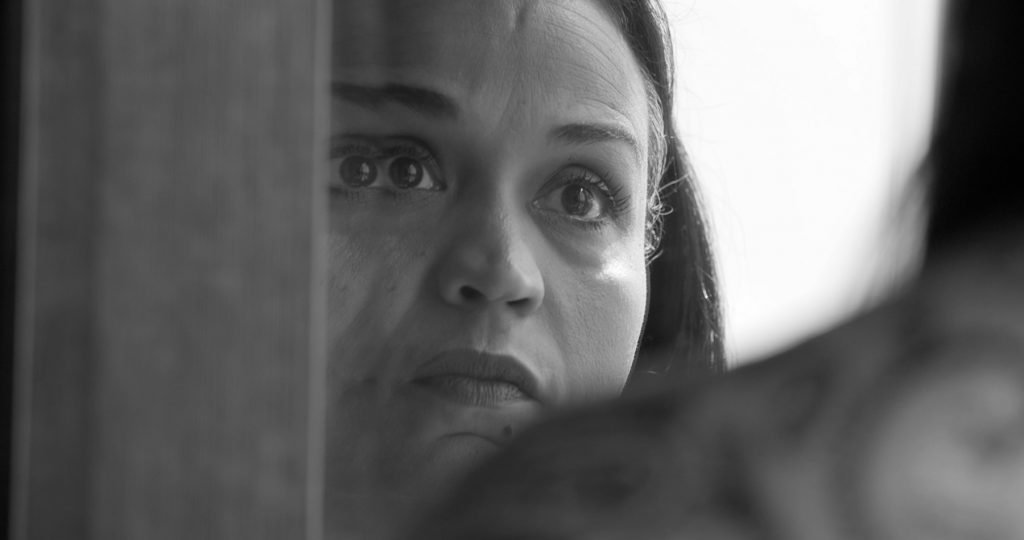Time delves deep into the darkness of the prison-industrial complex with a poignant peek at one family’s painful plight.
In a year that has been dominated by powerful protests against police brutality and constant contentious political conflict as we head into what very well may be the most important election in modern American history, concerns over racial justice and the prison-industrial complex have been thrust into the limelight, and for good reason. It’s not that these topics create a unique or unfamiliar unease – as, sadly, the turmoil we’re tackling today has been building and brewing for centuries – but rather that those affected by this agonizing anguish are finally being afforded the space to speak and share their sorrowful stories.
We’ve all seen the startling statistics – including those that illustrate how Black Americans represent 33% of the sentenced prison population, which is nearly triple their 12% share of the overall U.S. adult population – but, in recent years, we have been able to put a face to this tyranny, making this maltreatment that much harder to deny or disregard. When you sincerely see the faces of those who have suffered at the hands of such a sinister and self-serving system, these numbers become names, and these percentages become people; we palpably perceive this prejudice for ourselves, and suddenly, it becomes personal.
Garrett Bradley’s (Alone, America) Time is one such story, expertly exposing audiences to these excruciating institutional evils while simultaneously serving as an ode to aspirational optimism in the face of overwhelming odds. Bradley never shies away from completely capturing the catastrophe at the center of this story, but she offsets the weight of these woes with an indelible and inspirational idealism, personified by the magnanimous matriarch Sibil Fox Richardson, the central subject of Bradley’s documentary. Years prior, Richardson and her husband Robert – newly married high school sweethearts – were down-on-their-luck business owners who, in a moment of desperation, attempted to rob a bank. When things went awry, and the two ended up in jail, Fox only ended up serving three and a half years for her part in the plot, while Robert was sentenced to 60 years behind bars.

Time tracks the tale of Fox’s earnest and eternal efforts to file appeals with the courts to free her husband over the course of 21 years, whilst she is also asked to maintain an equal focus on family and her fledgling business as well. Furthermore, Fox never forgets to film every major moment in her six sons’ lives throughout this time – from every birthday party to every holiday to every graduation and more – to make a mosaic of memories for Rob upon his hopeful eventual release. Bradley and editor Gabriel Rhodes (Newtown, The Tillman Story) skillfully splice this footage together with Fox’s pursuits in the present, including her stirring speeches about her strife – given to any and all who will listen – and her bimonthly visits to the Louisiana State Penitentiary.
This cross-cutting could have quickly become confusing or chaotic, but with Bradley’s deft direction and Rhodes’ sturdy structuring, Time navigates its unconventional narrative design quite delicately, and this specific form of storytelling best speaks to the overall theme of the piece. These 21 years without Richard have felt like they’ve lasted forever and that they’ve gone by too fast, at the same time; just as Fox wishes that her husband’s sentence could have been shorter, she additionally finds herself struggling to balance all her responsibilities – as a wife, as a mother, and as a daughter – in the little time she’s been given. And yet, in spite of all this struggle, she never once desists from her deeds in despair or forgets her faith.
It is Fox’s headstrong and humane hope that makes Time as terrific and tender as it is, as she is able to overcome any obstacle she encounters simply by virtue of her persistence and perseverance. Potential “sob stories” like this can so often descend into “poverty porn,” in which a filmmaker exploits the sorrows of its struggling subjects in the name of “art,” but Bradley adeptly avoids that approach here, and Fox’s fearlessness gives her no choice to even consider such a concept. In spite of the calamity at the center of this chronicle, Time is more often an outline of the buoyancy of Black love – between husband and wife, and between parent and child – highlighting the heartfelt humanity beneath all of this hardship.
In fact, prior to its cheerful conclusion, the film is often actually most alive when showcasing Fox’s smart and sensitive sons as they too strive to do right by a man whom some have never even known, solely due to the fiery fidelity they hold to their father. Some show their service by stepping up and assuming patriarchal duties in Rob’s absence, while others go on to pursue professions in criminal justice in order to restructure such injurious institutions. Though Sibil is certainly the de facto “protagonist” of the picture – since she acts as our entry point into all of this trouble and turmoil – her sons play a significant part in alleviating the agony that arises from Rob’s imprisonment, proving that every member of a family is enormously affected by this adversity, and not just the one brought behind bars.
Time’s brilliant black and white cinematography gives the melancholic chronicle a “classical” feel, once again tying into this thematic through line of “timelessness.” Not only does the story of Sibil and Robert feel essentially endless at moments – emphasizing the crushing cruelty of the criminal justice system – but they are not alone in their tragedy, as this is sadly a saga that has perpetually presented itself in all sorts of families across the nation for years on end. Time specifically spotlights the suffering of the Richardsons, but it’s an ageless anecdote that almost all Black Americans will find unfortunately understandable. More praise must be paid to commendable composers Jamieson Shaw (The Earth is Humming) and Edwin Montgomery (Rebecca), as their sumptuous score also adds to this artistically amaranthine atmosphere, evoking a range of effusive emotions over the course of the film’s 81-minute runtime and always aligning with the sentiment of the scene on screen.
One may feel that they’re already aware of experiences explored in Time, but reading a headline about institutional injustice and actually becoming acquainted with this anguish alongside those affected are two separate things entirely; it’s easy to be dismissive of roars for racial equality and cries for criminal justice reform when you haven’t ever personally participated in this plight at any point in your life. Luckily, as famed film critic Roger Ebert once noted, “the movies are like a machine that generates empathy,” and no story better applies to that statement than Garrett Bradley’s Time. As she and Sibil Fox Richardson take you through the ups and downs of this tragic and tender tale, you don’t just absently-mindedly examine the events of the film – you live through this trauma and terror, as if you too are a Richardson. And, by the end, you will no longer be able to hear a story of this strife without feeling that fear, first-hand.
Time is currently being screened at the BFI London Film Festival, both in cinemas and digitally on the BFI Player. Read our review of festival film Any Other Way: The Jackie Shane Story!

